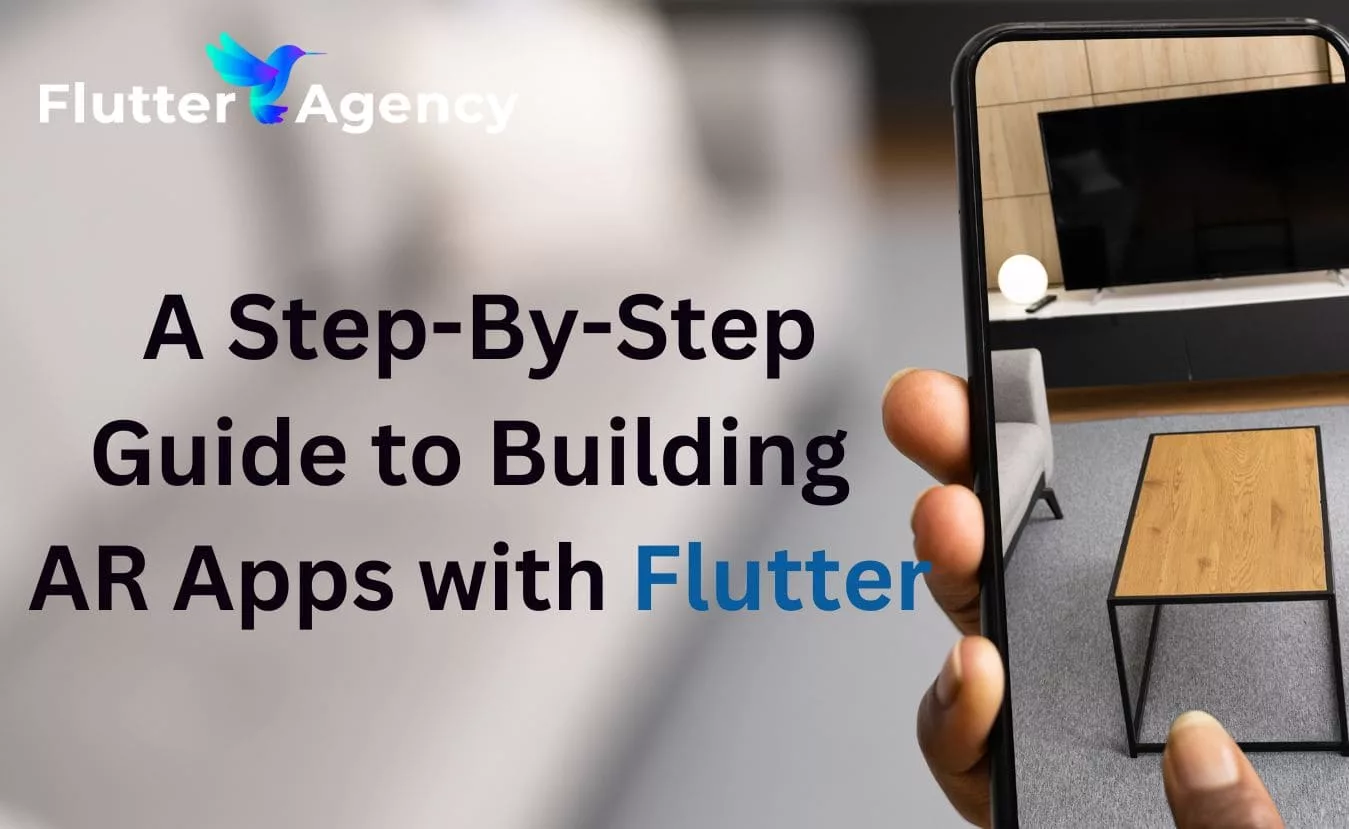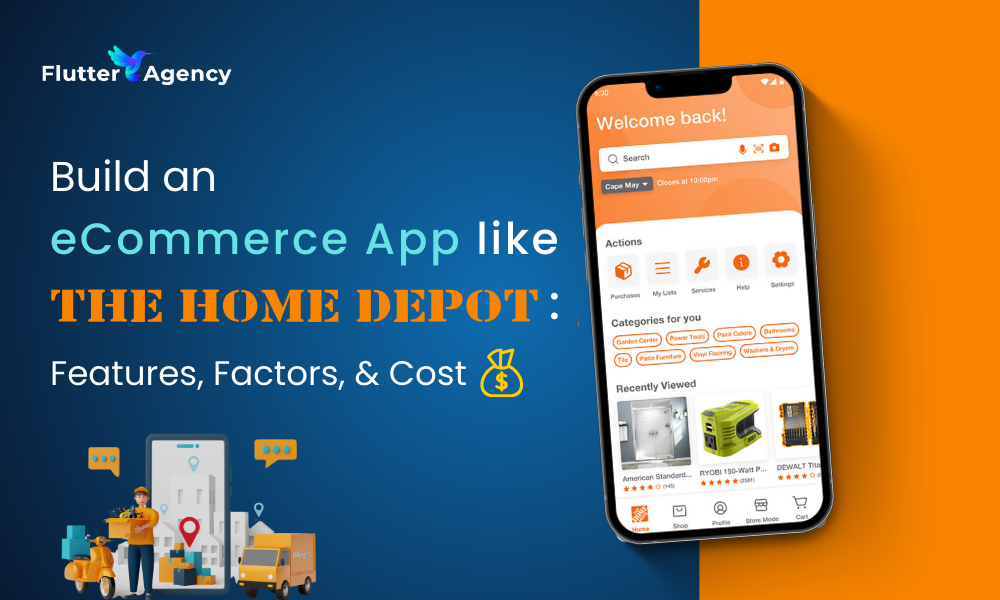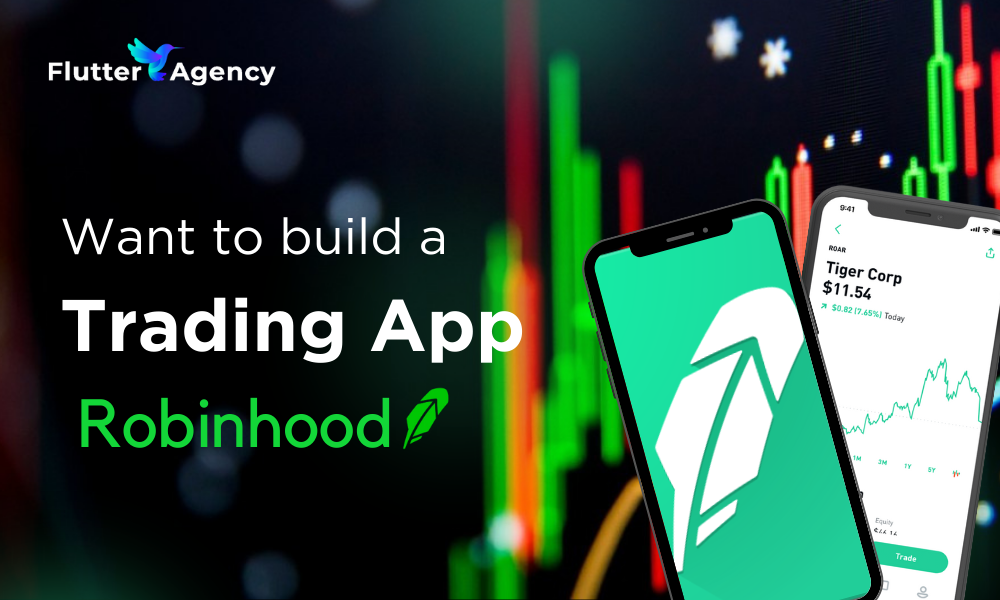A Step-By-Step Guide To Building AR Apps With Flutter
We live in a world that’s very adaptive to new advancements and where technological advancements have become indispensable, making revolutionary changes in various industries. People are drawn towards a more immersive and interactive experience. Talking about, AR or Augmented Reality, it has brought a newer way of interaction with digital content because of its superpower to blend with both the virtual and real world. Be it the retail industry, business, gaming, healthcare, or even the military, AR is playing a crucial role in solving various challenges.
The biggest challenge for such industry owners is choosing the right and most ideal tech stack to move forward for their app development. One of the widely used and popular tech stacks is Flutter, offering an array of solutions to streamline the overall experience of users. You can hire an experienced flutter team for the same.
Let’s uncover the step-by-step process of how these Flutter Apps are developed. But before, let’s warm up about what AR or augmented reality is.
Well, what is the all-famous AR, Augmented Reality about?
Now think, you have added a new layer to your reality. AR is somewhat that. This digital layer that you have added can be visual, audio-visual or audio dominant. For example, you’re trying to fix up an electronic machine while referring to a visual instruction or hearing about some historic landmark while standing in front of it. Hiring a Flutter developer will benefit you in many ways and includes making you understand the actual meaning of AR in layman terms.
What can AR look like when it runs into action?
Imagine yourself fixing your car. AR will show you exactly what equipment to use and the correct placement of that pesky screw. While you are on a trip, AR can notify you about location facts and hidden treasures as you keep walking.
So, what we want to convey in a nutshell about AR is that it’s interactive and adds fun to real-life activities. It simply blends so well with the real world that the eyes and mind find it oddly satisfying.
How AR is different from VR is its adaptability. VR creates a completely new digital environment, whereas AR fits those digitally soothing components into your existing environment. AR is all about digital advancements like 3D models, animations, text and further blends them in the real world.
AR is still very young, which is why it feels very much like a superpower and allows you to experience the world in a new way.
The Flutter developer you choose to hire can also show you some great examples of AR.
Some exciting numbers in the world of AR are:
In 2019, there were approximately 0.44 billion active AR user devices. By 2021, this number had almost doubled to 0.81 billion.
As of 2023, there are 1.4 billion AR user devices in active use. And that figure is expected to increase to 17.3 billion in 2024.
Why leverage the Flutter superpower for building AR apps?
Cross-platform Development:
You can build an AR app that works seamlessly both on iPhones and Androids, with just one codebase!
Hot Reload:
Changes can be made in a flash with Flutter. Tweak and watch the results on the go- it’s so simple.
Customizable and Extensible:
It’s a treasure for all-things-customized! It also works well with other technologies like ARCore and ARKit, which allows you to include AR finesse into your app without heavy effort.
Performance:
AR apps require a very smooth and swift performance. Flutter fulfils this by directly compiling a naive code for both iOS and Android, meaning a well-oiled running of your AR App. No lags and no glitches.
So, if you want to leverage all these features for your upcoming AR App, hire a Flutter developer, and leave the rest to them, because trust us, they know the best! Flutter is their secret skill for creating awesome and immersive AR apps!
Let’s talk real numbers:
- A survey from 2022 indicated that 46% of developers opted for Flutter, making it the most popular cross-platform mobile framework. The growth is also reflected in the rising number of developers adopting Flutter.
- In 2021, Flutter outpaced React Native, becoming the most used cross-platform framework.
Prep the Environment: Gearing up is required before the start of building an AR App with Flutter!
Since Flutter is compatible with both iOS and Android, respective SDKs will have to be installed in your systems. Here are some prerequisites –
Latest Flutter SDK installed on your system
- An IDE (Integrated Development Environment) like Android Studio or a text editor like Visual Studio Code. Don’t forget to equip them with the Dart plugin/extension, like a translator for your Dart coding adventures.
- An Emulator or Physical Device for testing the AR apps with Flutter.
- Packages whereby you can use ‘arcore_flutter_plugin’ for Android and ‘arkit_flutter_plugin’ for iOS AR functionality.
Steps to build an AR app in Flutter:
1. Setting up a preferred development environment
Installing Flutter is obvious, to move ahead with the app development.
If you are dealing with an Android device, installing ARcore is a must, which is Google’s AR platform for Android. Whereas, if you are dealing with an iOS device, install ARKit, which is Apple’s AR platform, bundled with Xcode.
These are the foundation steps towards inaugurating your AR App!
2. Choose the desired AR Framework or Plugin
For a less complicated development process for AR app development using an existing AR framework or plugin can be highly beneficial. 2 most widely used options that exist are:
- ARKit Plugin: For iOS app development, this package can be beneficial.
- ARCore Plugin: For Android development, the arcore_flutter_plugin package can be beneficial.
On the parameter of which platform you are targeting, the apt plugin is chosen.
3. Understanding the core fundamentals of AR is necessary before diving into building AR Apps.
These concepts will act like building blocks for your AR app masterpiece and will allow you to inculcate a truly immersive AR experience. What you need to ace is:
Tracking: This is the most important sense organ for your app, and can be called the foundation of the app. This allows the AR app to understand the physical world around the user’s device while tracking useful information about the environment.
Other important AR concepts are Anchors, planes, hit testing, and rendering of 3D objects.
4. AR App Designing
This is the step where deciding the purpose and functionality of your app is important. What problem will it solve? What experience will it provide? The answers to these count as the decision-making factors.
How to integrate AR into your app’s user interface and user experience comes under this step.
Sketching out the user flows, object placement and user interaction with the virtual objects also fall under this. Next is defining the 3D objects to be leveraged in your app to make it live.
What’s to be remembered here? Well, it’s factors like model complexity, file format and AR optimization while selecting your 3D assets. Hiring an experienced Flutter developer proves to be very beneficial in this.
5. Start building and implementing
After the planning phase comes the implementation phase. This is where you bring your AR masterpiece to life with codes. The breakdown is:
Project Setup:
Begin the AR Session using ARKit or ARCore.
Configuring the AR Settings:
Adjust tracking, lighting, and plane detection.
AR views creation:
Integrating the AR view widget into UI.
AR events handling:
Implementing event listeners for actions.
Load 3D Objects:
Importing and positioning 3D models.
Implement Interactivity:
Enable user actions like tapping or dragging.
Manage Anchors:
Keep track of fixed positions in AR scene.
Enhance Visuals:
Apply textures, animations, or effects.
Testing:
Test on various devices and scenarios.
6. Publishing phase
After successful implementation of AR and testing of the app, it’s the time to deploy and enjoy!
Summarizing
Using Flutter to build dynamic and interactive AR Apps opens gate to a dynamic pool of possibilities and adds a thrilling element to your app. With the collaboration of Flutter and AR, innovation knows no bounds. Hire a Flutter developer today to leverage the most for your AR App development with Flutter.
Contemporary ventures
Recent blog
ready to get started?
Fill out the form below and we will be in touch soon!
"*" indicates required fields









